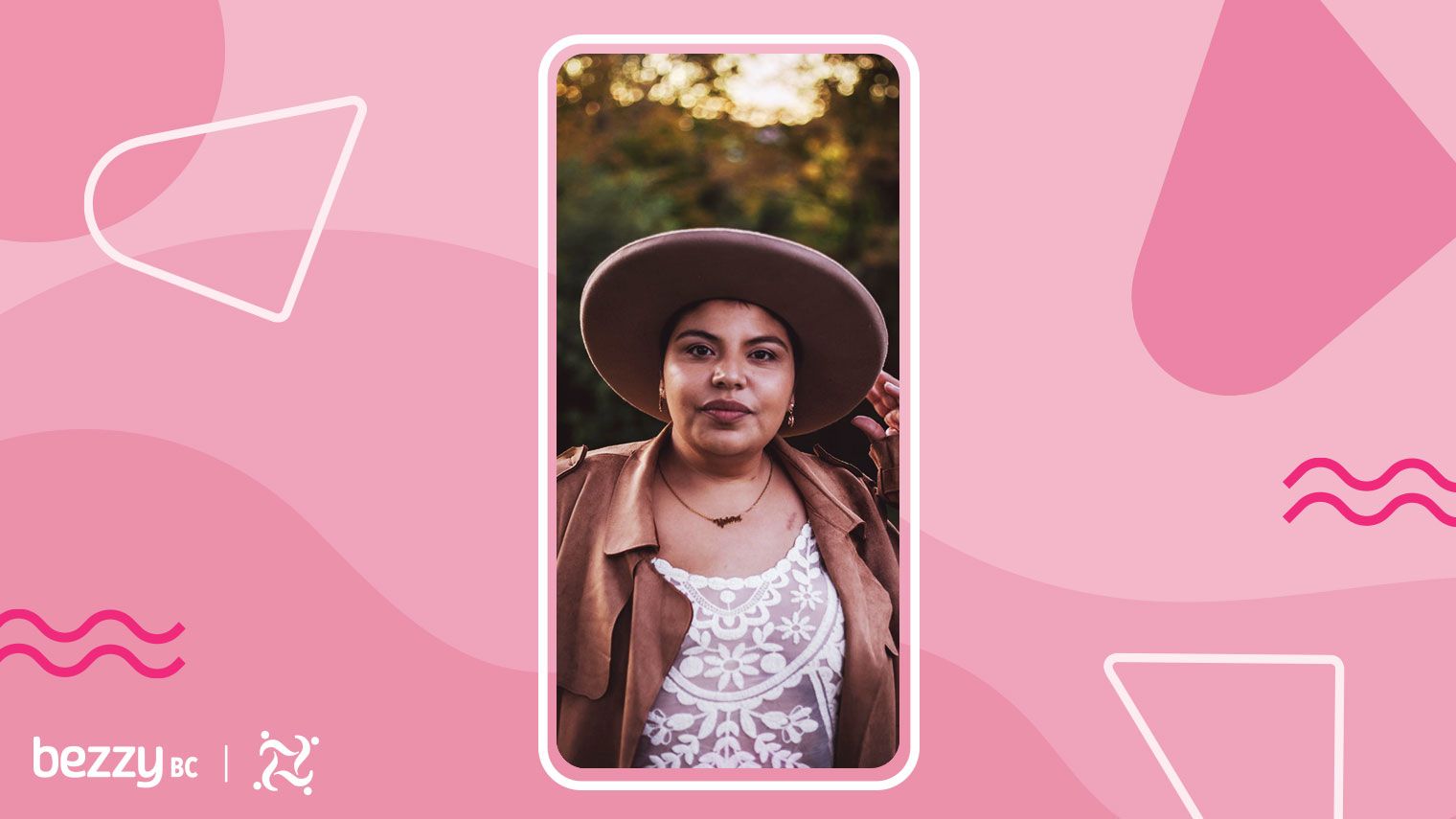Why Yahira Torres Created a New Breast Cancer Community and Retreat
November 18, 2022
Content created for the Bezzy community and sponsored by our partners. Learn More

Most people don’t realize that the aftermath of cancer treatment is hard, too.
It was September 2020 when Yahira Torres, a mother of two boys, found a lump in her breast.
“You’re too young to have cancer,” she was told when she visited the doctor. She was 31 after all, and the median age of getting diagnosed with breast cancer is 62. Still, to be sure, she got a referral for a mammogram.
Not too long after, she was diagnosed with invasive ductal carcinoma. She also tested positive for the BRCA2 gene mutation right after, so she decided to get a double mastectomy just 3 months later with tissue expanders.
“I had 17 lymph nodes removed, with only one coming back with cancer,” she says. “With that information, I was told that I should go through chemotherapy and radiation.”
She had 16 rounds of chemo from February to June. Shortly after, she had to stop preparing for radiation to treat two infections from her expanders, which were later removed so she could finally get the radiation treatment she needed. She completed radiation in December 2021.


The aftermath of breast cancer
Treatment isn’t over, of course, even though she is “done” with active treatment.
“I am currently on hormonal therapy for the next 10 years and taking care of all the things that come with being positive for BRCA2,” she continues. She had a double mastectomy for preventive measures and but has yet to be able to get reconstruction done.
“I still feel very much in the thick of it because I haven’t been able to get reconstruction done,” she says. “Because I have a high BMI, my choice of having a DIEP flap surgery has been delayed until I lose weight.”
But that’s the thing, she says, that most people don’t realize about getting a cancer diagnosis. The aftermath is hard, too.
“[Cancer] is a challenging road, there’s no sugar coating it,” she says, “but it’s what you do with that diagnosis that will impact how you see life.”
“Once you are done with active treatment, it can be challenging to get back to your normal routine,” she says.
But she hasn’t slowed down. She’s certified in Reiki and she works three jobs: business manager for Wicked Cool for Kids (an educational program), executive assistant to a sex therapist, and she runs Pride Retreat, the organization that she founded post-diagnosis.
“I love to travel and am great at planning,” she says. “In my group of friends, I’ve always been the planner and I am able to make a cabin trip happen for us yearly.”
So, why not do the same thing with her breast cancer friends?
“I knew other communities were doing similar ideas, but I told myself that it didn’t hurt to have more opportunities to gather together in this community,” she says.
Building a community
And so, Pride Retreat was born.
“I’d say that’s it’s magic,” she adds. “I know that sounds corny, but it is. It’s a group of people coming together with the sole purpose of relaxing, enjoying each other’s company, and building relationships.”
So far, Pride Retreat has only held one retreat, but the next one is already planned for June 2023 in Phoenix, Arizona and 28 people are planning on attending so far.
“My hope is that I can build a sense of community amongst those affected by cancer,” she says. “I want to build a sisterhood and remind folx that they aren’t alone in this fight.”
Yahira has created an online community of “lionesses” on Instagram. They also have a program where they use half the donations they receive for Pride Retreat for “Coffee on Me,” a program where anyone that has been affected by cancer can sign up to receive a Starbucks gift card.
They also share journal prompts and affirmations and host a Secret Santa exchange during the holidays.
“[Cancer] is a challenging road, there’s no sugar coating it,” she says, “but it’s what you do with that diagnosis that will impact how you see life.”
“I personally like to see cancer as a wake-up call — it has made me appreciate life as I’ve never done before.”
It’s also important to find your community, she says. “They can be your lifeline when you are at your lowest and you feel like those around you just don’t fully understand.”
This is When You See Us, a series in partnership with our friends at For the Breast of Us, highlighting the experiences of Women of Color in the breast cancer community. Together, we believe that hearing the stories of women who look like you and can relate to your experiences has the power to foster community, resiliency, and hope.
Fact checked on November 18, 2022
1 Source


Like the story? React, bookmark, or share below:
Have thoughts or suggestions about this article? Email us at article-feedback@bezzy.com.
About the author